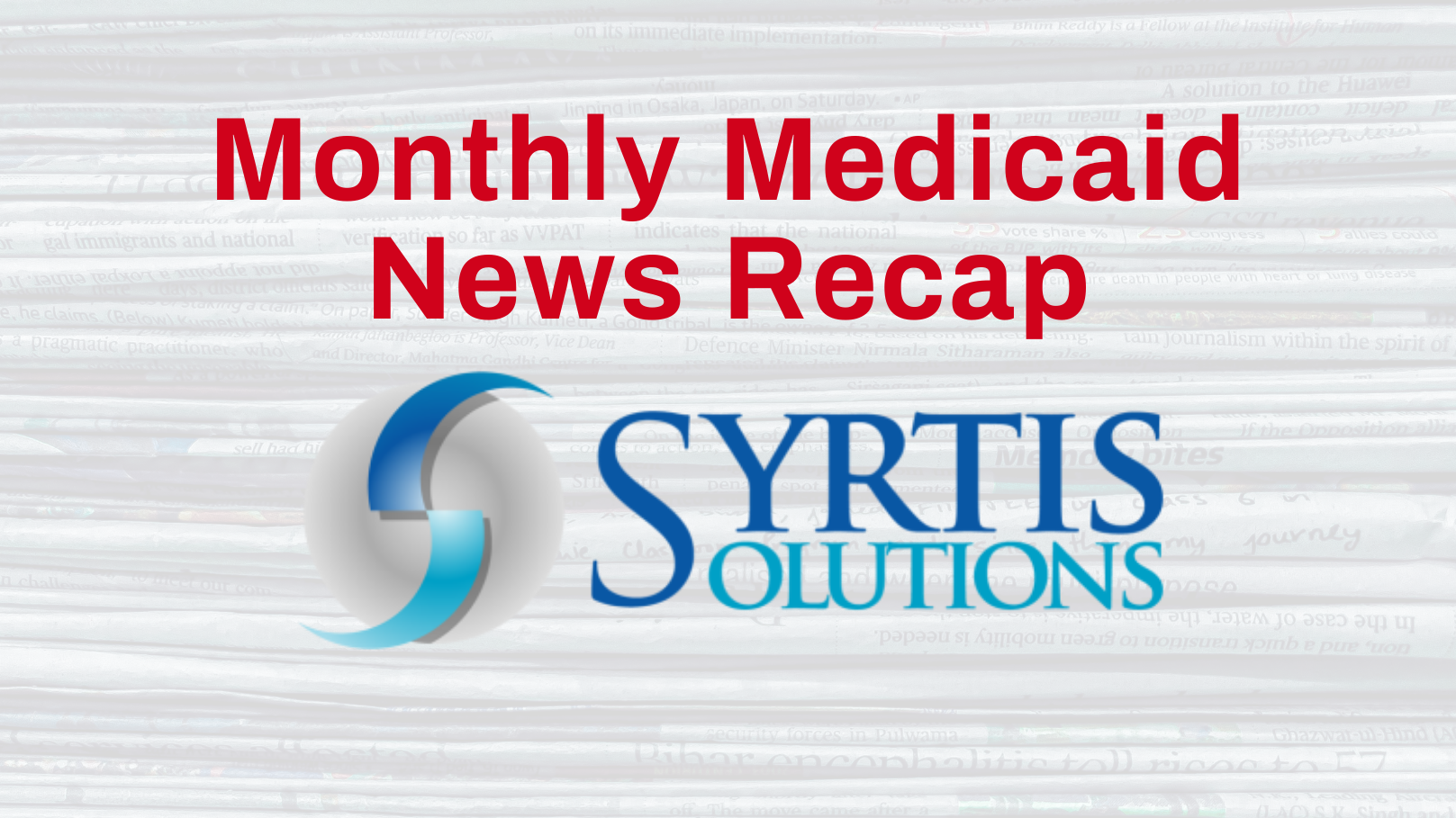
28 May MEDICAID NEWS RECAP – MAY 2021
Syrtis Solutions distributes a monthly Medicaid news summary to help you stay up-to-date. The monthly roundup focuses on developments, research, and legislation that relates to Medicaid program integrity, cost avoidance, coordination of benefits, improper payments, fraud, waste, and abuse. Below is a summary of last month’s noteworthy Medicaid news.
Syrtis Solutions, May 27
Improper payments cost Medicaid $86.49 billion in 2020 alone. A common misunderstanding is that improper payments come from fraud and abuse when in reality the majority come from prosaic, ordinary problems such as eligibility errors and antiquated data systems. Fraud in Medicaid may well still be a significant issue, but when improper payments are the outcome of eligibility errors rather than fraud, the true scope of the challenge can better be resolved.
Lawsuit aims to force Missouri governor to enact voter-approved Medicaid expansion CNN Politics, May 20
The battle to expand Medicaid in Missouri has now shifted to the courtroom. A lawsuit was filed Thursday to force GOP Gov. Mike Parson to expand Medicaid on July 1, as voters approved in a ballot measure last year. The move comes a week after Parson said he will not broaden the public health insurance program to roughly 275,000 low-income residents because lawmakers did not appropriate funding. read more
The Oklahoman, May 20
The Oklahoma Senate on Wednesday overwhelmingly approved a bill to add legislative oversight and legal guardrails to Gov. Kevin Stitt’s plan to outsource care for most Medicaid recipients. The passage of an updated version of Senate Bill 131 gives opponents of third-party managed care a victory, but perhaps not the victory they wanted. read more
State of Reform, May 20
The Biden administration’s reversals of three Trump-era Medicaid decisions signal a wholesale change in direction is now underway. While some legal wrangling is likely (and may be protracted), the previous administration’s imprint on the program is certain to fade with time. The new president signed an executive order on January 28th jump-starting an aggressive review of recent Medicaid decisions. read more
Tennessee AG files motion to intervene in lawsuit challenging state’s Medicaid block grant FOX 17, May 20
Tennessee Attorney General Herbert H. Slatery III on Thursday filed a motion to intervene in a federal lawsuit challenging the state’s Medicaid block grant. The motion requests the U.S. District Court to allow the state of Tennessee to intervene as a defendant. Gov. Bill Lee signed the block grant waiver resolution in January, saying it would “allow Tennessee to lead the nation with our innovative solution to Medicaid.” read more
Georgia Health News, May 19
The state’s Medicaid agency is setting up plans for a health insurer bidding competition that will award a new multibillion-dollar medical contract. “We’ll be looking for the best bang for the buck,’’ Frank Berry, commissioner of the Georgia Department of Community Health (DCH), said last week at an agency board meeting. The current Medicaid insurers are being paid a total of about $4 billion a year for delivering medical services to more than 1 million members.
Each year, pharmacy benefit managers (PBMs) help patients with chronic conditions and disease management, improve drug therapy and patient adherence in diabetes patients and prevent heart failures, kidney disease incidents, strokes and amputations. Yet, despite the important role they play in helping create healthy outcomes, there often remains the question: What good are PBMs, really? read more
KFF, May 4
While prescription drug pricing was an issue at state and federal levels even prior to the COVID-19 pandemic, there may be increased attention to Medicaid prescription drug policies as states face fiscal pressures from the economic effects of the pandemic and as the federal government may seek spending offsets to upcoming legislation aimed to expand coverage. read more
KFF, May 3
As the coronavirus pandemic took shape in the U.S. in the early months of 2020, there was some uncertainty about how it would impact the financial performance of health insurers. Hospitals, physicians, and other health care providers cancelled elective procedures to free up beds, staff and supplies early in the pandemic and to limit unnecessary exposure and risk of infection. Patients also opted to forgo non-urgent care to limit risks and exposure to the virus. These dynamics led to an unprecedented decrease in health care spending and utilization during the Spring of 2020. read more
